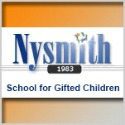
Sylvia Martinez is President of Generation Yes. Prior to joining this non-profit, she was VP of Development at Encore Software, a publisher of game and educational software on PC, Internet, and console platforms. For seven years, she was also the executive producer at Davidson & Associates/Knowledge Adventure, an educational software developer.
Martinez has an M.A. in Educational Technology from Pepperdine University, and a B.S. in electrical engineering from the University of California, Los Angeles.
WashingtonExec got the chance to speak with Martinez about her role at Generation Yes, how to get involved, the future STEM holds, and more.
WashingtonExec: What is your background and how did you get involved in STEM?
Sylvia Martinez: I have an electrical engineering degree and worked in aerospace on the GPS satellite navigation system development right out of college. After I had children, I became interested in using computers in education. I got a masters in education, then worked as an executive producer for Davidson & Associates, of MathBlaster software fame and other software and console game publishers.
WashingtonExec: Please describe your day to day responsibilities at Generation Yes.
Sylvia Martinez: Generation YES is a non-profit with a mission to empower young people to make a difference by using technology in education. We have curriculum and online tools that help teachers and students collaborate to use technology in the classroom. As president, I speak, write, and evangelize about our mission. It encompasses product development, PR, marketing, development, grant writing, and working with educators all across the US.
WashingtonExec: The U.S. is not turning out the engineering students that we need to in order to compete as an innovative country. Why is this issue so important to you?
Sylvia Martinez: For me personally, becoming an engineer was the intellectual turning point in my life. I was always good at math and science in school, but learning to solve real problems that could make the world a better place meant that I could make a difference. I want everyone to have that feeling.
_______________________________________________________________________________________
Children need to have those powerful experiences at all ages, to prove to themselves that their ideas are valuable and can turn into positive action. Those experiences are key to innovation.”
________________________________________________________________________________
WashingtonExec: What’s your view to get more parents involved in STEM?
Sylvia Martinez: I think schools need to be more open to the whole community, not only parents. We need children and parents to see that science is around them everyday. STEM isn’t worksheet problems or vocabulary words.
WashingtonExec: What are some simple ways to get their kids more involved in STEM at an early age?
Sylvia Martinez: Parents can seek out experiences where their kids get to make and do things. The Maker movement has exploded recently. Get a copy of Geek Dad or Geek Mom and make something with your kids–anything from cooking and sewing to building a fort. Sometimes moms do not realize that the crafts they do have terrific STEM connections. The act of making something reinforces learning, and also teaches habits of persistence, willingness to “have a go”, and mindfulness. Parents should not accept schools where science and math only happen on paper and are only measured with multiple-choice tests.
WashingtonExec: What’s the best STEM success case study/project that you have been personally involved in?
Sylvia Martinez: For the past 5 years I’ve been on the faculty of Constructing Modern Knowledge, a summer institute for teachers. Every year we bring amazing resources like Legos, robotics, wearable computers, and more for teachers to play with and learn to use. Many teachers are a bit unsure of themselves as scientists and it’s crucial that they have experiences just like ones that are good for kids. Every year, teachers amaze themselves with the projects they do in a few short days. Our graduates report this changes the way they teach and that to me is a huge success.
WashingtonExec: What’s the future of STEM? How can other like-minded people get involved?
Sylvia Martinez: I am hopeful that students will get more hands on, experiential learning, with modern materials and more engaging projects. I also hope that we can empower younger students to experiment with the digital world. So much is possible these days with very inexpensive microcomputers, 3D printing, robots, and other fascinating technology.
However, I worry that the US is too focused on test scores and simple standardized assessment. The future will be about who can be creative and innovative, not who gets the best test scores.
_______________________________________________________________________________________
People need to speak out about what’s important for education. We need all kids to have access to engaging, experiential learning opportunities, not just test prep.”
________________________________________________________________________________
WashingtonExec: What blogs/resources are useful to check out?
Sylvia Martinez: I post a lot of resources on our Generation YES blog http://blog.genyes.org and there is more information about the Constructing Modern Knowledge summer institute at http://www.constructingmodernknowledge.com. Our website http://www.genyes.org has many free resources such as how to start a student-run “Genius Bar” at your school. We hope that people take these ideas and work with students to make them happen. It’s only by working collaboratively with young people that education will improve and move forward.


